Artwork of Jersey internees goes on display
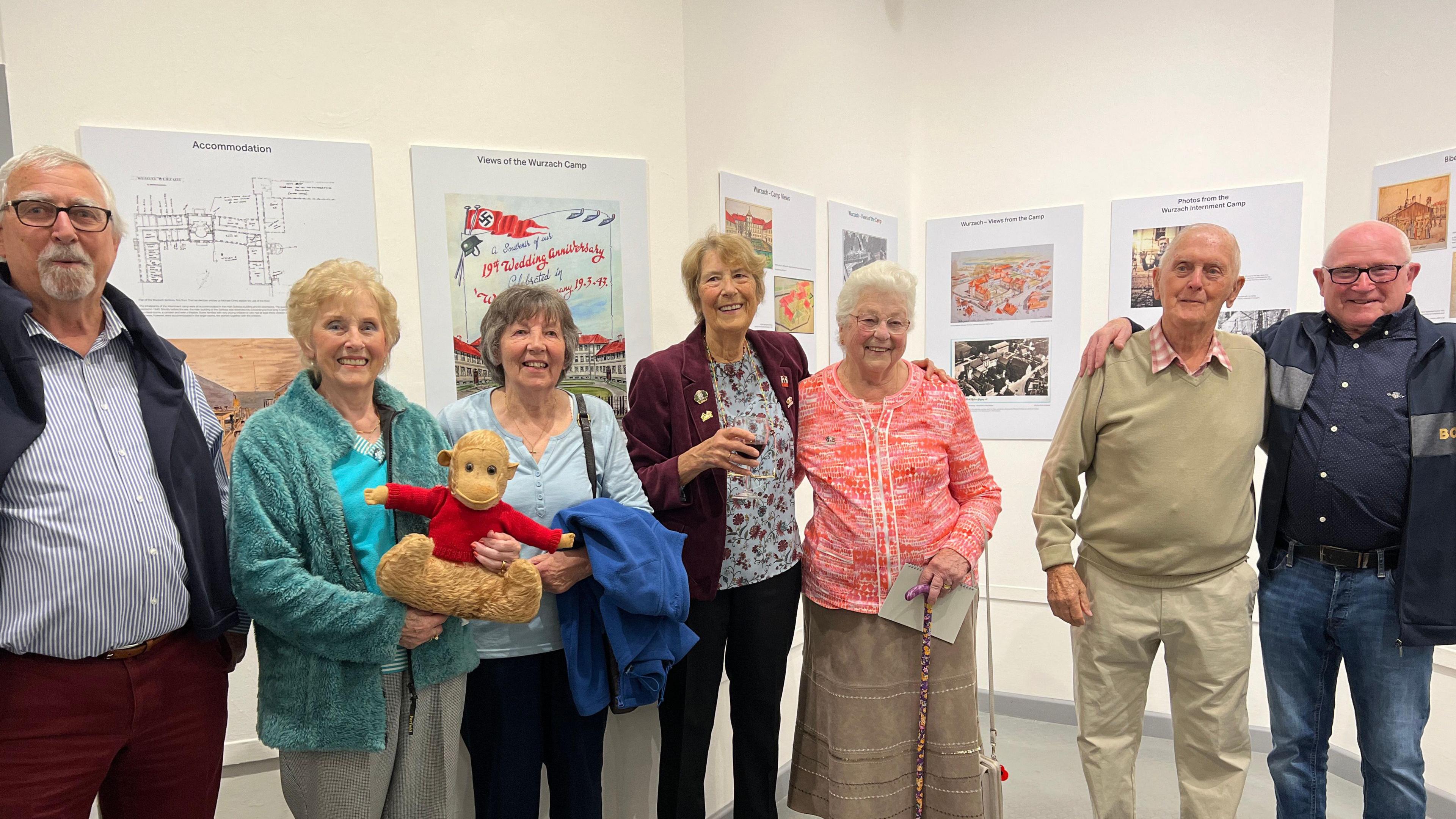
Some of the internees who were children when they were taken to Germany attended the opening of the exhibition
- Published
Artwork made by Jersey internees during World War Two has gone on display at an exhibition.
About 600 people were deported from the island in 1942 and taken to the internment camp in Bad Wurzach in Germany.
Some of the internees, who were children when they were deported, attended the opening of the ‘Life Behind Barbed Wire’ exhibition at Jersey Arts Centre.
Organisers wanted to help others understand what people went through between 1942 and 1945 in the internment camp.
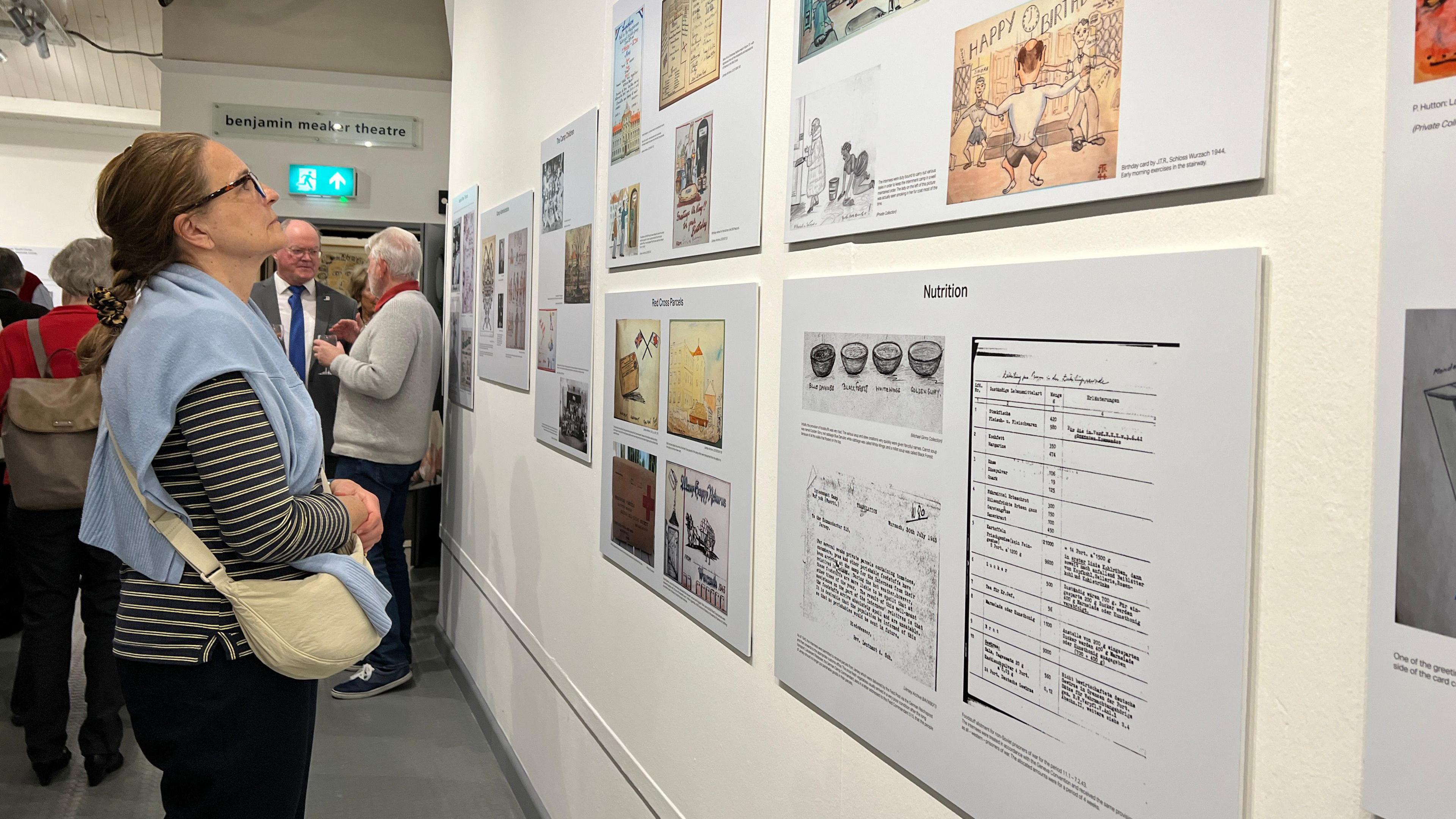
Dozens of people came to the opening of the exhibition
Francelise Davidson was three when she was taken with her family to Bad Wurzach.
She was one of about 200 children who were taken and Ms Davidson said she found “a photo of my sister when I was four years old and she was five years old” and that was “quite emotional”.
“My father had 24 hours to clear the house and get us on the first ship out,” she added.
Ms Davidson said the exhibition “shows how people came together” and it has been “put on beautifully”.
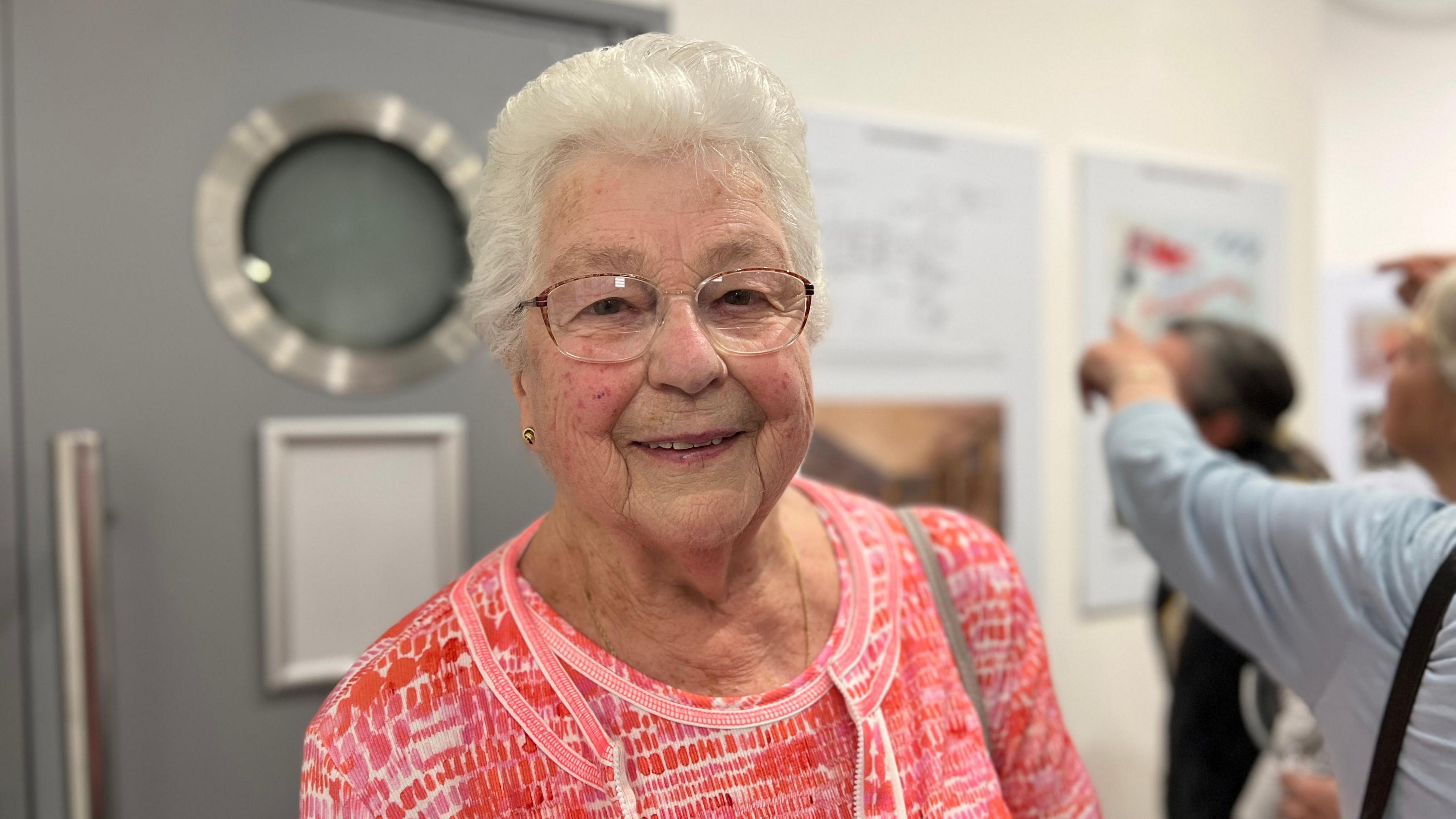
Francelise Davidson hopes more people will visit the exhibition and learn about this part of Jersey's history
Lola Garvin is the chairman of the St Helier and Bad Wurzach Twinning Committee and also a former internee.
She helped bring the exhibition over from Germany where it was originally displayed.
Ms Garvin said seeing the photos brought back memories of the “hardships and the difficult times”.
She added a photo of her old dormitory was very moving because she had shared it “with 30 mothers and children with a stove in the middle and we lived there 24 hours a day”.
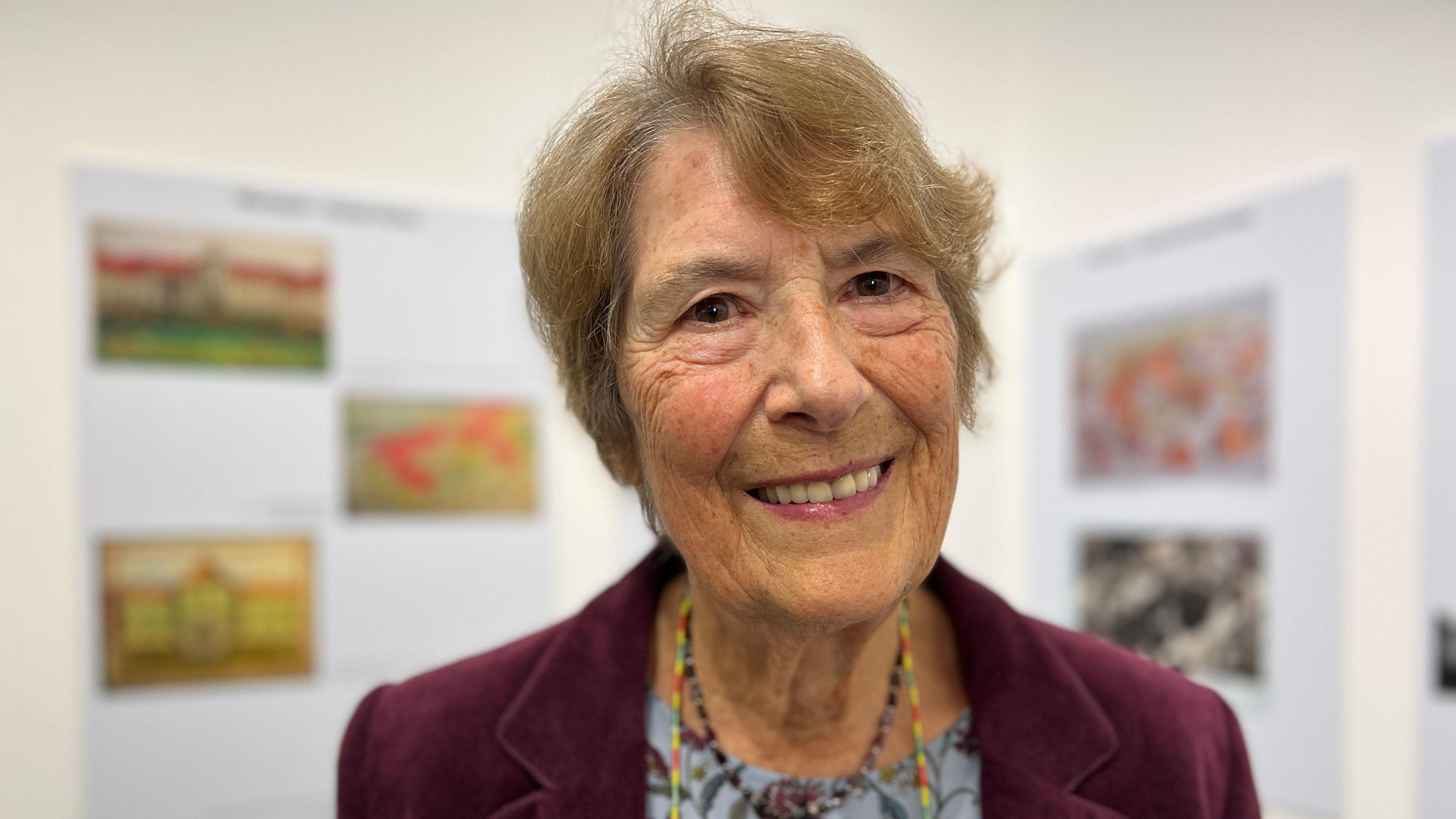
Lola Garvin said several schools were interested in visiting the exhibition
The exhibit was curated by Gisela Rothenhausler of the Bad Wurzach Partnerschaft Committee.
She said the opening was “very overwhelming for some people seeing these images again” and she “didn't expect so many people to turn up”.
Ms Rothenhausler added the exhibition showed pictures internees made of “everyday life or sports being played”.
She said she hoped it would reveal a side of the internment camp “people haven’t seen before”.
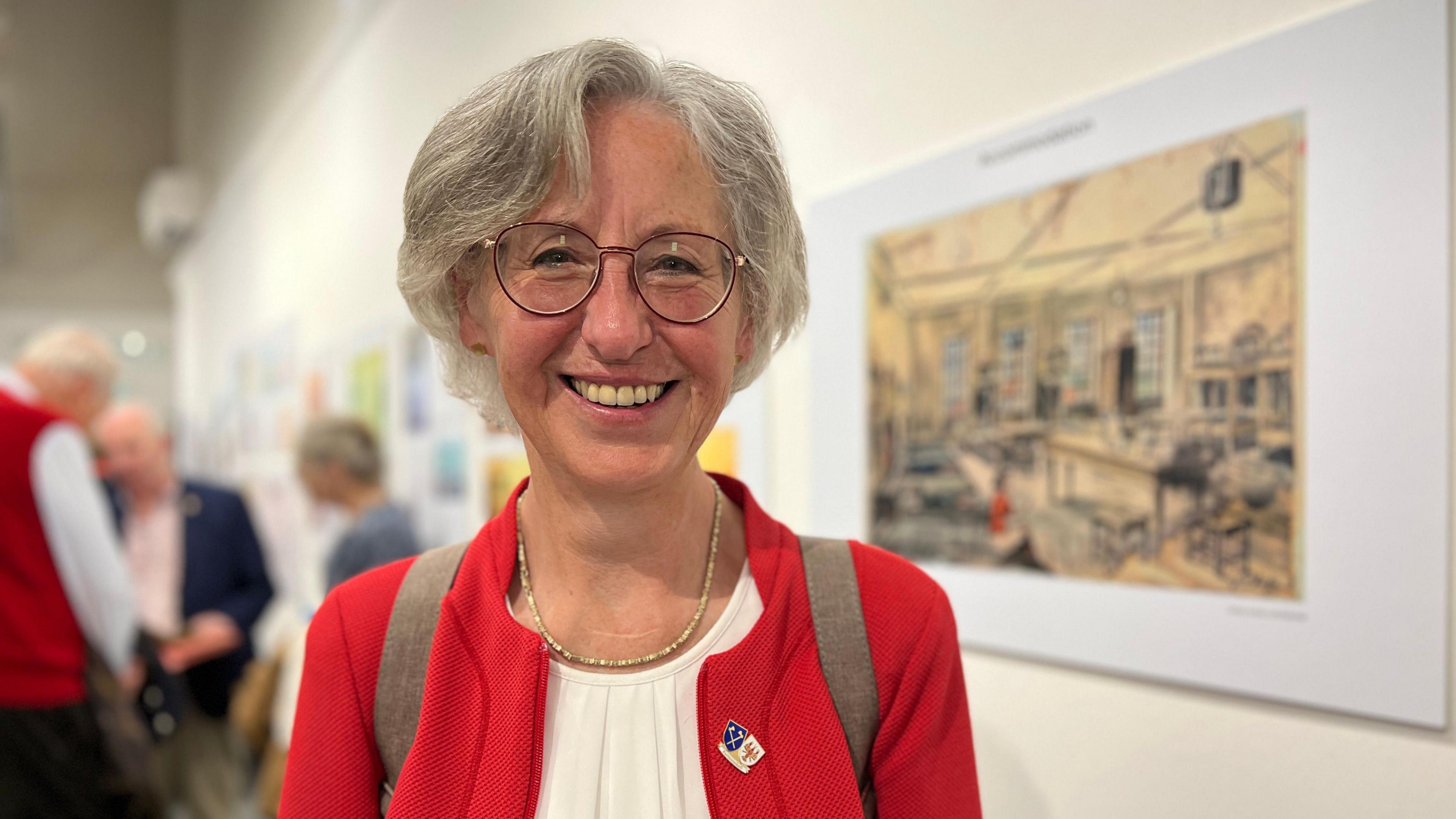
Gisela Rothenhausler has written a book about the internment camp at Bad Wurzach
Follow BBC Jersey on X (formerly Twitter), external and Facebook, external. Send your story ideas to channel.islands@bbc.co.uk, external.
Related topics
- Published1 May 2024
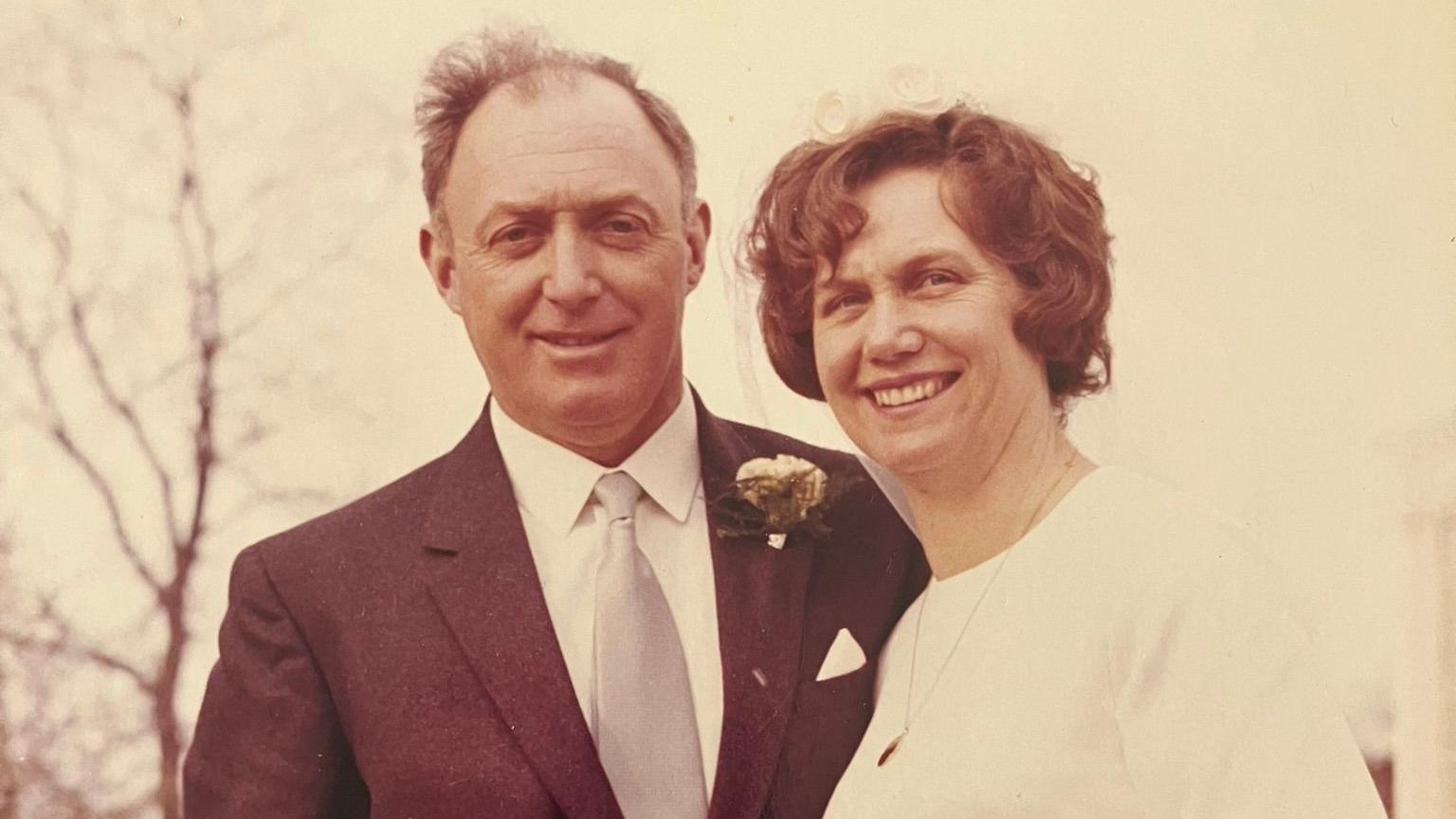
- Published19 April 2024
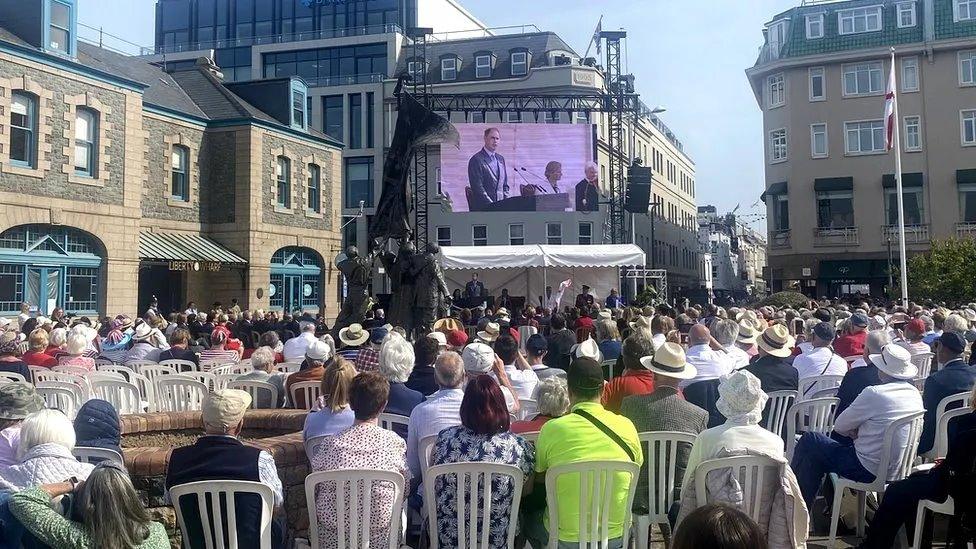
- Attribution